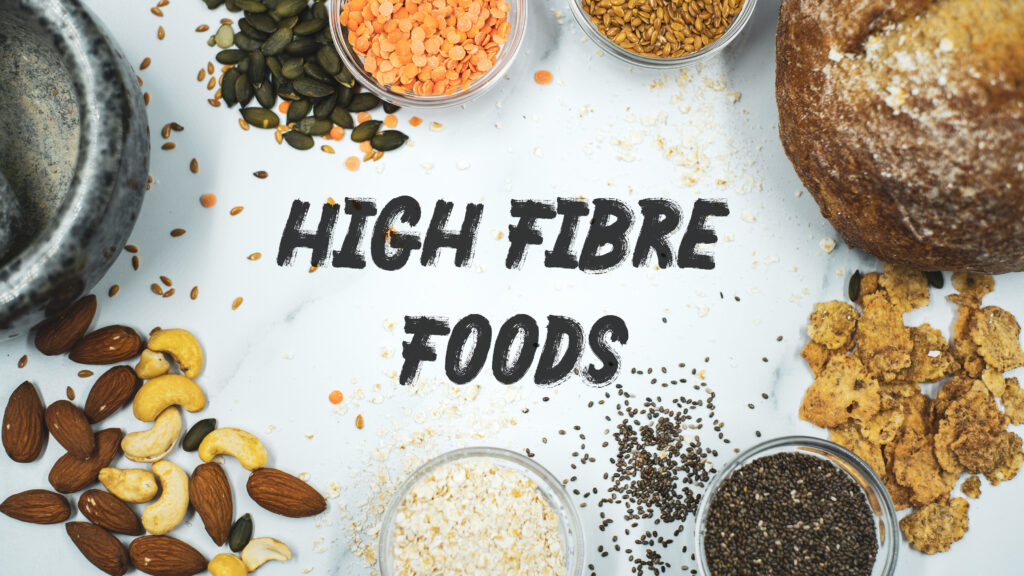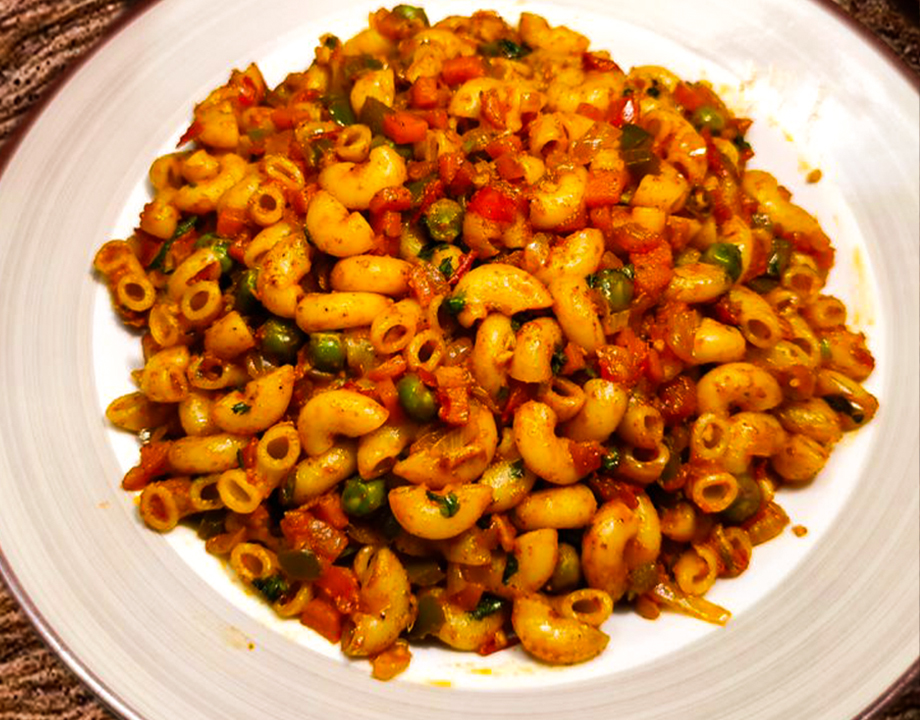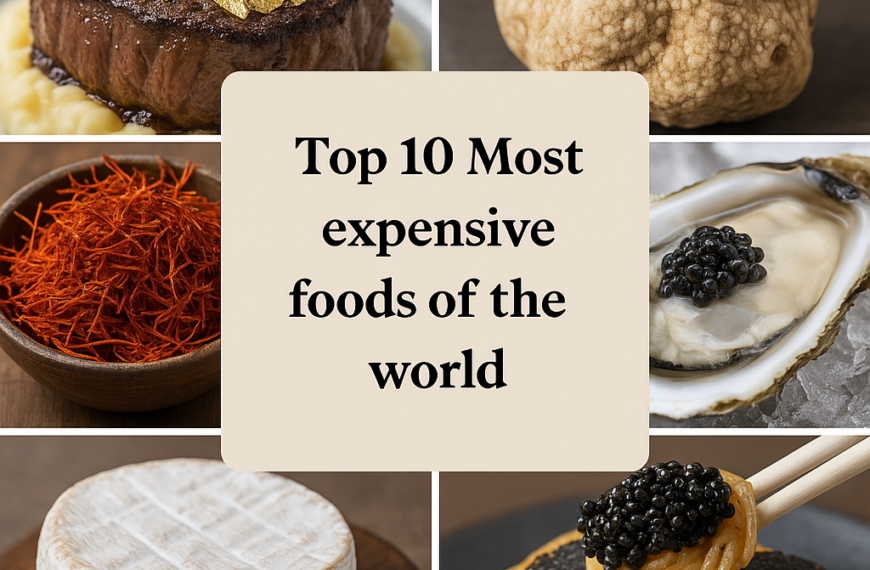In This Article
Hormonal disorders are increasingly common today, especially among women. Among the most talked-about are PCOD (Polycystic Ovarian Disease) and PCOS (Polycystic Ovary Syndrome). Though often confused, these conditions differ in severity and underlying causes. PCOD occurs when the ovaries release immature or partially mature eggs, which develop into cysts. It’s largely lifestyle-related and can often be managed with healthy habits. PCOS, however, is a more serious endocrine disorder that affects the hormonal balance of the entire body.
Women with PCOS may face a range of symptoms, including weight gain, acne, irregular periods, hair thinning, and even infertility. The condition may also increase the risk of diabetes, heart disease, and depression. In contrast, PCOD is typically less severe and doesn’t always impact fertility. Still, both require early diagnosis and consistent care.
Speaking from experience, dealing with these conditions can feel overwhelming—but a well-informed approach makes a big difference. Diet, exercise, and mental well-being are essential pillars of management. Many women have significantly reduced or even reversed their symptoms through sustainable changes in lifestyle and nutrition.
This article aims to guide you through the most effective diets, lifestyle adjustments, and natural remedies that can help manage PCOD and PCOS symptoms. From anti-inflammatory foods to stress-reducing habits, it’s possible to take control of your hormonal health—naturally and holistically. Empower yourself with the right tools, and healing becomes a journey of self-care and transformation.
Difference Between PCOD and PCOS: Why It Matters for Your Health
PCOD (Polycystic Ovarian Disease) and PCOS (Polycystic Ovary Syndrome) are two terms that are often used interchangeably, but they refer to different conditions with distinct causes, symptoms, and health implications. While both affect the ovaries and can lead to similar reproductive and hormonal issues, understanding the nuances between them is the first step toward effective treatment and long-term management.
What is PCOD?
Polycystic Ovarian Disease (PCOD) is a condition where a woman’s ovaries begin to release immature or partially mature eggs. These eggs do not complete their development and often accumulate in the ovaries, forming small cysts. Over time, this disrupts the regular ovulation cycle and leads to a host of symptoms, such as:
- Irregular or delayed periods
- Bloating and abdominal discomfort
- Unexplained weight gain
- Acne or oily skin
- Increased hair growth in certain areas (hirsutism)
PCOD is often linked to poor lifestyle habits, including unhealthy diets, lack of physical activity, stress, and irregular sleeping patterns. It can typically be managed through simple lifestyle modifications such as eating balanced meals, exercising regularly, staying hydrated, and managing stress levels. In most cases, PCOD doesn’t severely affect fertility, and women with this condition often conceive naturally with minimal assistance.
What is PCOS?
Polycystic Ovary Syndrome (PCOS), on the other hand, is a more complex and serious endocrine disorder. It affects not only the ovaries but also has widespread effects on the body’s hormonal and metabolic systems. PCOS is characterized by an excess production of androgens—male hormones that are present in small amounts in all women. These elevated androgen levels can disrupt ovulation and cause multiple systemic symptoms, such as:
- Chronic anovulation (lack of ovulation)
- Irregular or absent menstrual cycles
- Insulin resistance and increased risk of type 2 diabetes
- Excessive facial and body hair
- Scalp hair thinning or male-pattern baldness
- Persistent acne and oily skin
- Difficulty losing weight, despite efforts
- Fertility challenges
Unlike PCOD, PCOS has more serious long-term health risks if not diagnosed and managed early. These include an increased risk of heart disease, diabetes, endometrial cancer, high blood pressure, and complications during pregnancy. In many cases, PCOS requires a combination of lifestyle changes and medical intervention such as hormonal therapy or insulin-sensitizing drugs.
Best Diet Plan for PCOD (Polycystic Ovarian Disease)
Polycystic Ovarian Disease (PCOD) is a hormonal disorder that affects a large number of women of reproductive age. One of the most effective ways to manage PCOD symptoms is through a balanced and nutritious diet. The right food choices can help regulate insulin levels, balance hormones, reduce inflammation, and maintain a healthy weight. Here’s a detailed diet plan that can support PCOD management:
High-Fiber Foods

Fiber plays a crucial role in improving digestion and slowing down the absorption of sugar in the bloodstream, which helps in reducing insulin resistance—a common issue in PCOD.
Best picks:
- Oats: Rich in beta-glucan, oats help stabilize blood sugar levels and keep you full longer.
- Barley: A wholesome grain packed with fiber and great for keeping insulin levels in check.
- Spinach: A leafy green that’s not only fiber-rich but also packed with iron and magnesium.
- Bottle Gourd: Low in calories and high in fiber, making it perfect for weight management.
- Apples: A fruit with both soluble and insoluble fiber that supports gut health and blood sugar control.
Low-Glycemic Index (GI) Choices
Low-GI foods are digested slowly, resulting in a gradual rise in blood sugar levels. This is essential for women with PCOD, as it helps avoid insulin spikes.
Include in your meals:
- Brown Rice: A healthy swap for white rice, brown rice is rich in fiber and nutrients.
- Millets: Bajra (pearl millet), jowar (sorghum), and ragi (finger millet) are excellent low-GI grains with multiple health benefits.
- Quinoa: A complete protein source that also offers fiber, iron, and magnesium.
Lean Proteins
Protein helps in maintaining muscle mass, reducing cravings, and keeping blood sugar levels stable. Incorporating lean protein is key for hormonal balance.
Great sources:
- Paneer (Cottage Cheese): Low-fat paneer is a good vegetarian protein option.
- Lentils: A rich source of plant-based protein, fiber, and iron.
- Tofu: High in protein and calcium, it’s a good soy-based option.
- Greek Yogurt: Rich in probiotics and protein, which aid digestion and reduce inflammation.
Healthy Fats
Don’t fear fats—especially the good ones. Healthy fats are essential for hormone production and overall well-being.
Healthy fat sources:
- Ghee (in moderation): Desi ghee contains butyric acid, which supports digestion and reduces inflammation.
- Nuts: Almonds, walnuts, and cashews provide healthy fats, protein, and micronutrients.
- Seeds: Flaxseeds, chia seeds, pumpkin seeds, and sunflower seeds are excellent sources of omega-3 fatty acids and fiber.
Anti-Inflammatory Spices
Chronic inflammation can worsen PCOD symptoms. Including spices with anti-inflammatory properties can aid in reducing bloating and improving insulin sensitivity.
Add to your daily diet:
- Turmeric: Contains curcumin, a powerful anti-inflammatory compound.
- Cinnamon: Helps regulate blood sugar levels and improves insulin function.
- Fenugreek (Methi): Known to balance hormones and manage blood glucose levels.
Foods to Avoid
Certain foods can trigger PCOD symptoms, contribute to weight gain, and increase insulin resistance.
Steer clear of:
- Sugary snacks: Cookies, pastries, cakes, and candies cause blood sugar spikes.
- Soft drinks and sweetened beverages: These are high in empty calories and sugar.
- White rice and refined grains: These have a high glycemic index and little fiber.
- Processed snacks: Chips, instant noodles, and packaged junk food can worsen inflammation and hormonal imbalance.
Bonus Tips:
- Stay Hydrated: Aim for at least 2–3 liters of water per day.
- Eat Small, Frequent Meals: This keeps your metabolism steady and prevents overeating.
- Incorporate Light Exercise: Yoga, walking, or strength training can greatly improve hormonal health.
- Get Enough Sleep: Aim for 7–8 hours of quality sleep every night.
A well-planned diet can be a game-changer in managing PCOD. While this is a general guide, it’s always best to consult a registered dietitian or healthcare provider for a personalized plan tailored to your specific needs.
Best Diet Plan for PCOS (Polycystic Ovary Syndrome)
Polycystic Ovary Syndrome (PCOS) is a common hormonal condition that affects women’s metabolism, menstrual cycle, and fertility. While symptoms can vary from person to person, one of the most effective ways to manage PCOS naturally is through dietary changes. A well-balanced, nutrient-rich diet can help manage insulin resistance, support hormonal balance, and reduce inflammation.
Here’s a comprehensive diet plan designed to support women dealing with PCOS:
Low-Carb Diet
Carbohydrates impact blood sugar and insulin levels, both of which are often imbalanced in women with PCOS. A low-carb diet can help improve insulin sensitivity and reduce the risk of weight gain.
Smart choices:
- Leafy greens: Spinach, kale, and arugula are low in carbs and high in essential nutrients like iron, magnesium, and folate.
- Broccoli: Rich in fiber, antioxidants, and vitamin C, broccoli helps reduce inflammation and supports hormone health.
- Berries: Blueberries, raspberries, and strawberries are low in sugar and packed with antioxidants that support metabolic health.
- Salmon: A fatty fish high in omega-3 fatty acids, salmon supports heart health and helps reduce inflammation.
- Chia seeds: High in fiber and omega-3s, chia seeds help regulate blood sugar and support digestion.
Protein-Rich Foods
Adequate protein intake is essential for blood sugar regulation, hormone production, and appetite control. It also supports muscle maintenance and reduces cravings.
Best protein sources:
- Chicken (grilled or boiled): A lean meat option that’s high in protein and low in saturated fat.
- Tofu: A great plant-based protein that also contains calcium and iron.
- Boiled Eggs: An affordable and nutrient-dense option that provides protein, healthy fats, and vitamins.
- Greek Yogurt: Packed with probiotics and protein, Greek yogurt supports both gut and hormone health.
Cut Down on Certain Foods
Some foods can worsen PCOS symptoms by triggering inflammation, spiking insulin levels, or disrupting hormonal balance. It’s important to be mindful and reduce the intake of such items.
Limit or avoid:
- Refined flour: Found in white bread, pastries, and most baked goods, it quickly raises blood sugar levels.
- Sugar: Excessive sugar intake leads to insulin spikes and can worsen hormonal imbalance.
- Red meat: High consumption of processed or fatty red meats may increase inflammation.
- Dairy: Some women with PCOS are sensitive to dairy, which may increase androgens (male hormones). If you notice bloating, acne, or irregular cycles, try reducing or eliminating dairy to see if symptoms improve.
Support Gut Health
A healthy gut is essential for nutrient absorption, hormone regulation, and immune function. Fermented foods introduce beneficial bacteria (probiotics) into the digestive system and help reduce inflammation.
Great fermented options:
- Kefir: A fermented milk drink that contains a wide range of probiotics.
- Kimchi: A Korean fermented vegetable dish, rich in probiotics and antioxidants.
- Kombucha: A fermented tea that supports digestion and helps detoxify the body.
Additional Tips:
- Stay Consistent: PCOS requires long-term lifestyle changes. Consistency with healthy eating habits is key.
- Exercise Regularly: Incorporate strength training, walking, or yoga to support metabolic health and reduce insulin resistance.
- Sleep Well: Hormonal balance is closely tied to sleep quality. Aim for at least 7–8 hours of restful sleep per night.
- Hydrate: Drink plenty of water to aid digestion, support metabolic processes, and curb cravings.
PCOS is a manageable condition with the right approach to food and lifestyle. This diet plan serves as a starting point, but every body is unique. Consulting a healthcare professional or a registered dietitian for a personalized plan can provide the best results tailored to your symptoms and health goals.
Lifestyle Changes for PCOD (Polycystic Ovarian Disease)
While diet plays a key role in managing PCOD, your lifestyle habits are equally important. Simple, consistent changes in your daily routine can go a long way in improving hormonal balance, managing insulin resistance, and reducing common symptoms like irregular periods, weight gain, and fatigue.
Here are some essential lifestyle changes that support better PCOD management:
Exercise Regularly
Staying physically active improves insulin sensitivity, aids weight management, and boosts mood. It doesn’t have to be intense—just consistent.
Recommended activities:
- Yoga: Supports hormonal balance, reduces stress, and improves flexibility. Poses like butterfly, cobra, and child’s pose are especially beneficial.
- Brisk Walking: A low-impact cardio option that helps improve metabolism and supports heart health.
- Zumba or Dance Workouts: A fun and effective way to stay active while burning calories. Aim for 30 minutes a day, at least 5 times a week.
Prioritize Quality Sleep
Hormonal health is closely tied to sleep. Poor sleep can worsen insulin resistance, increase stress hormones, and disrupt your menstrual cycle.
Tips for better sleep:
- Aim for 7–8 hours of uninterrupted sleep each night.
- Fix your sleep schedule by going to bed and waking up at the same time daily—even on weekends.
- Limit screen time at least an hour before bed to improve sleep quality.
Manage Stress Effectively
Chronic stress increases cortisol levels, which can throw other hormones off balance. Managing stress is vital for maintaining overall hormonal health.
Ways to reduce stress:
- Breathing Exercises: Practice deep breathing or alternate nostril breathing to calm the nervous system.
- Journaling: Writing down your thoughts and emotions can help clear your mind and process stress.
- Aromatherapy: Use calming essential oils like lavender or chamomile during your relaxation routine.
Build a Healthy Routine
Consistency is key when managing PCOD. A structured routine can help stabilize hormones, improve digestion, and reduce mood swings.
Focus on:
- Eating on time: Have meals at consistent times each day to avoid insulin spikes and improve digestion.
- Sleeping on time: Establish a bedtime routine that encourages winding down and quality rest.
Avoid These Common Habits
Certain everyday habits can worsen PCOD symptoms over time. Being mindful and avoiding them can significantly improve your condition.
Habits to avoid:
- Late-night bingeing: Eating heavy meals or snacks late at night can disrupt digestion and sleep.
- Skipping meals: This can lead to blood sugar fluctuations, increased cravings, and overeating later in the day.
Lifestyle Changes for PCOS (Polycystic Ovary Syndrome)
Polycystic Ovary Syndrome (PCOS) is a complex hormonal condition, and while medication and diet help, your lifestyle plays a crucial role in managing symptoms and supporting long-term health. From stress reduction to physical activity, simple daily habits can make a significant difference in improving insulin sensitivity, menstrual regularity, and emotional well-being.
Here are some effective lifestyle changes to incorporate into your daily routine:
Weight Management
Maintaining a healthy weight can help regulate menstrual cycles, reduce insulin resistance, and lower androgen levels—all of which are key in managing PCOS.
Recommended exercises:
- Strength Training: Building muscle improves metabolism, balances hormones, and supports fat loss. Focus on bodyweight exercises, resistance bands, or light weights.
- Cardio Workouts: Activities like jogging, cycling, or HIIT help burn fat and improve cardiovascular health. Aim for at least 150 minutes of moderate cardio per week.
- A combination of strength + cardio is ideal for managing weight and hormone levels effectively.
Hormonal Balance Through Movement
Certain yoga poses are known to stimulate reproductive organs, improve blood flow to the pelvic area, and reduce stress—promoting overall hormonal balance.
Helpful yoga poses:
- Butterfly Pose (Baddha Konasana): Stimulates the ovaries and reduces menstrual discomfort.
- Cobra Pose (Bhujangasana): Improves circulation to pelvic organs and strengthens the spine.
- Child’s Pose (Balasana): Promotes relaxation and helps ease anxiety or stress-related symptoms.
Screen-Free Time
Excessive screen time—especially at night—can disrupt your circadian rhythm and negatively impact sleep quality. Sleep plays a major role in hormonal regulation.
Healthy screen habits:
- Avoid phone, tablet, or laptop use at least 1 hour before bed.
- Replace screen time with a calming routine: light reading, journaling, or a warm bath.
- Use blue light filters in the evening if screen use is necessary.
Daily Sun Exposure
Vitamin D deficiency is commonly seen in women with PCOS and may impact fertility, mood, and insulin function. Getting natural sunlight can be a simple, effective solution.
How to get it:
- Aim for 10–30 minutes of morning sunlight exposure several times a week, depending on your skin tone and location.
- Expose arms, face, or legs without sunscreen briefly (but avoid the midday sun).
- If needed, consult your doctor about Vitamin D supplements.
Track Your Symptoms
Understanding your cycle and PCOS symptoms can help you take proactive steps toward better health. Journaling or using a health app brings more awareness and can assist your healthcare provider in spotting patterns.
Tracking tips:
- Use a period tracker app to monitor cycles, ovulation, and mood changes.
- Keep a symptom journal for noting acne, fatigue, bloating, cravings, or emotional fluctuations.
- Logging lifestyle habits like food, exercise, and sleep can help identify what’s working best for your body.
Natural Home Remedies for PCOD (Polycystic Ovarian Disease)
While medical treatment and lifestyle changes are essential for managing PCOD, many women also turn to natural home remedies for added support. These remedies—used alongside a balanced diet and healthy routine—can help regulate hormones, improve menstrual health, and ease symptoms like insulin resistance, weight gain, and hair fall.
Here are some effective and easy-to-follow natural remedies you can incorporate into your daily routine:
Soaked Fenugreek Seeds
Fenugreek (methi) seeds are known for their ability to improve insulin sensitivity and regulate blood sugar levels—two of the most important aspects of PCOD management.
How to use:
- Soak 1 teaspoon of fenugreek seeds in water overnight.
- Consume the soaked seeds on an empty stomach the next morning.
- You can also take another spoonful before lunch and dinner for best results.
Benefits:
- Balances insulin levels
- May help regulate menstrual cycles
- Supports weight management
Cinnamon Tea
Cinnamon has natural anti-inflammatory properties and is known to improve insulin function. It’s also believed to support menstrual regularity and reduce heavy bleeding.
How to make:
- Boil 1 cup of water and add ½ teaspoon of cinnamon powder or a cinnamon stick.
- Let it steep for 5–10 minutes, then strain.
- Drink this once daily, preferably in the morning or before bed.
Benefits:
- Regulates periods
- Reduces blood sugar levels
- Supports better metabolism
Curry Leaves with Buttermilk
Curry leaves are packed with antioxidants and support liver function, while buttermilk aids digestion and cools the body. Together, they create a powerful detoxifying and digestive drink.
How to prepare:
- Blend a handful of fresh curry leaves with a glass of plain buttermilk.
- Drink this mixture mid-morning or after meals.
Benefits:
- Boosts digestion
- Helps flush out toxins
- May reduce cholesterol levels
Flaxseeds
Flaxseeds are rich in lignans and omega-3 fatty acids that help balance estrogen levels and combat high levels of androgens (male hormones) often seen in PCOD.
How to use:
- Take 1 tablespoon of ground flaxseeds daily—sprinkle it over salads, smoothies, or mix it with water.
- Avoid consuming them in whole form, as they pass through the body undigested.
Benefits:
- Helps control hair fall
- Regulates hormone levels
- Supports heart and skin health
Note of Caution:
These natural remedies are meant to complement, not replace, medical treatment or professional advice. Always consult your healthcare provider before starting any new remedy, especially if you’re taking medication or have other health conditions.
Natural Home Remedies for PCOS (Polycystic Ovary Syndrome)
Polycystic Ovary Syndrome (PCOS) affects hormonal balance, insulin sensitivity, and overall metabolism. Alongside medical care, many women find relief through natural remedies that support hormonal regulation, reduce bloating, and ease stress. These home-based solutions can be a gentle yet effective way to manage symptoms when used consistently.
Here are some natural remedies that can be easily included in your daily routine:
Spearmint Tea

Spearmint is known for its anti-androgen properties, which means it may help reduce elevated levels of male hormones often seen in PCOS. It also has a calming effect on the body and supports digestion.
How to use:
- Boil 1 cup of water and add 1–2 teaspoons of dried spearmint leaves (or use a spearmint tea bag).
- Let it steep for 5–7 minutes, strain, and drink.
- Consume once or twice daily for best results.
Benefits:
- Helps lower testosterone levels
- Reduces hirsutism (unwanted facial hair)
- Supports menstrual regularity
Aloe Vera Juice
Aloe vera is gentle on the stomach and helps with gut health. Since many women with PCOS experience digestive discomfort and bloating, aloe vera juice can soothe the gut lining and reduce inflammation.
How to use:
- Drink 15–30 ml of fresh, unsweetened aloe vera juice in the morning on an empty stomach.
- You can also mix it with water for a milder taste.
Benefits:
- Reduces bloating
- Supports digestion
- May improve skin clarity and inflammation
Apple Cider Vinegar
Apple cider vinegar (ACV) has been shown to improve insulin sensitivity and reduce blood sugar spikes. It may also aid in weight management when paired with a balanced diet.
How to use:
- Mix 1–2 teaspoons of raw, unfiltered ACV in a glass of lukewarm water.
- Drink it 15–30 minutes before meals once or twice a day.
Benefits:
- Balances blood sugar levels
- Supports metabolism
- Reduces sugar cravings
Tulsi (Holy Basil) Leaves
Tulsi is a traditional adaptogen, meaning it helps the body adapt to stress. Since chronic stress can worsen PCOS symptoms, tulsi supports hormonal balance and detoxification.
How to use:
- Chew 3–4 fresh tulsi leaves daily in the morning.
- Alternatively, steep a few leaves in hot water to make tulsi tea.
Benefits:
- Lowers cortisol (stress hormone)
- Supports hormone detox
- Strengthens immunity and reduces inflammation
Important Reminder:
These natural remedies work best when combined with a healthy diet, regular exercise, and proper medical guidance. Every body is different—listen to yours and consult a healthcare provider before making significant changes.
Frequently Asked Questions
Q: Is there a permanent cure for PCOS/PCOD?
A: There’s no permanent cure, but symptoms can be effectively managed with a healthy lifestyle.
Q: Is weight loss possible with PCOS/PCOD?
A: Yes, a low-carb and high-protein diet combined with regular exercise can help with weight loss.
Q: Are dairy products safe for PCOS/PCOD?
A: It depends on the individual. Avoid full-fat dairy if sensitive. Greek yogurt and paneer are generally safe.
Q: Is fasting safe with PCOS/PCOD?
A: Intermittent fasting can be helpful, but extreme fasting should be avoided.
Q: What’s the best workout for PCOS/PCOD?
A: Strength training and yoga are excellent. Walking or swimming can also be beneficial.
Conclusion
Managing PCOS and PCOD isn’t just about prescriptions—it’s about understanding your body, making mindful changes, and staying consistent. While both conditions can feel overwhelming, the good news is that they are manageable with the right diet, lifestyle choices, and natural remedies.
From adjusting what’s on your plate to practicing daily movement and stress relief, small steps can lead to major improvements. Whether you’re facing irregular cycles, hormonal acne, or emotional highs and lows, remember that you’re not alone—and that your body deserves care, not criticism.
Having faced similar symptoms myself, I learned that awareness is powerful. When we start listening to our bodies and nourishing them with intention, healing begins. You don’t need to be perfect—you just need to start.
Let’s grow stronger, healthier, and more in tune with ourselves—together.















